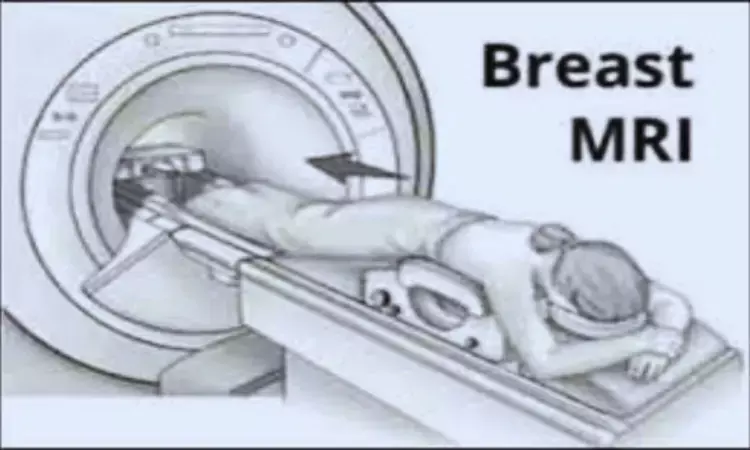- Home
- Medical news & Guidelines
- Anesthesiology
- Cardiology and CTVS
- Critical Care
- Dentistry
- Dermatology
- Diabetes and Endocrinology
- ENT
- Gastroenterology
- Medicine
- Nephrology
- Neurology
- Obstretics-Gynaecology
- Oncology
- Ophthalmology
- Orthopaedics
- Pediatrics-Neonatology
- Psychiatry
- Pulmonology
- Radiology
- Surgery
- Urology
- Laboratory Medicine
- Diet
- Nursing
- Paramedical
- Physiotherapy
- Health news
- Fact Check
- Bone Health Fact Check
- Brain Health Fact Check
- Cancer Related Fact Check
- Child Care Fact Check
- Dental and oral health fact check
- Diabetes and metabolic health fact check
- Diet and Nutrition Fact Check
- Eye and ENT Care Fact Check
- Fitness fact check
- Gut health fact check
- Heart health fact check
- Kidney health fact check
- Medical education fact check
- Men's health fact check
- Respiratory fact check
- Skin and hair care fact check
- Vaccine and Immunization fact check
- Women's health fact check
- AYUSH
- State News
- Andaman and Nicobar Islands
- Andhra Pradesh
- Arunachal Pradesh
- Assam
- Bihar
- Chandigarh
- Chattisgarh
- Dadra and Nagar Haveli
- Daman and Diu
- Delhi
- Goa
- Gujarat
- Haryana
- Himachal Pradesh
- Jammu & Kashmir
- Jharkhand
- Karnataka
- Kerala
- Ladakh
- Lakshadweep
- Madhya Pradesh
- Maharashtra
- Manipur
- Meghalaya
- Mizoram
- Nagaland
- Odisha
- Puducherry
- Punjab
- Rajasthan
- Sikkim
- Tamil Nadu
- Telangana
- Tripura
- Uttar Pradesh
- Uttrakhand
- West Bengal
- Medical Education
- Industry
Breast cancers detected on MRI screens are most often invasive, study finds

USA: A recent study published in Clinical Breast Cancer has found that MRI screen-detected breast cancers are most often invasive. Cancers detected by MRI screening were shown to have an excellent prognosis in the study population.
Naveen Ghuman, Johns Hopkins University School of Medicine, Baltimore, MD, and colleagues revealed that these invasive screen-detected cancers are most commonly presented as a mass.
Among 50 MRI screen-detected breast cancers in 47 women, the majority of cancers were invasive (64%). Most patients (91%) presented with stage 0 or 1 disease.
The American Cancer Society recommends annual supplemental breast screening with MRI for women having a greater than 20% lifetime risk for breast cancer. While there exists robust data regarding features of mammographic screen-detected breast cancers, the researchers note limited data regarding MRI-screen-detected cancers.
To fill this literature gap, Dr. Ghuman and the team described the clinical outcomes and imaging appearance of MRI screen-detected breast cancers. It included data from 50 screen-detected breast cancers in 47 women identified between 2016 and 2022.
The study led to the following findings:
- The majority of MRI-screen-detected cancers (64%) were invasive.
- Pathology revealed ductal carcinoma in situ (DCIS) in 36%, invasive ductal carcinoma (IDC) in 52%, invasive lobular carcinoma in 10%, and angiosarcoma in 2%.
- The majority of patients (91%) were stage 0 or 1 at diagnosis and there were no breast cancer-related deaths during the follow-up periods.
- Cancers presented as masses in 50%, non-mass enhancement in 48%, and a focus in 2%.
- DCIS was more likely to present as non-mass enhancement (94.4%), whereas invasive cancers were more likely to present as masses (75%).
- All cancers that were stage 2 at diagnosis were detected either on a baseline exam or more than 4 years after the prior MRI exam.
"The findings show that MRI screen-detected breast cancers were most often invasive cancers," the researchers wrote. "Cancers detected by MRI screening had an excellent prognosis in our study population."
Understanding the most common imaging presentations of MRI-screen-detected cancers may guide the interpretation and diagnostic performance of the exam," they concluded.
Reference:
The study titled, "Clinical and Imaging Features of MRI Screen-Detected Breast Cancer," was published online in Clinical Breast Cancer.
DOI: https://doi.org/10.1016/j.clbc.2023.09.012
Dr Kamal Kant Kohli-MBBS, DTCD- a chest specialist with more than 30 years of practice and a flair for writing clinical articles, Dr Kamal Kant Kohli joined Medical Dialogues as a Chief Editor of Medical News. Besides writing articles, as an editor, he proofreads and verifies all the medical content published on Medical Dialogues including those coming from journals, studies,medical conferences,guidelines etc. Email: drkohli@medicaldialogues.in. Contact no. 011-43720751


